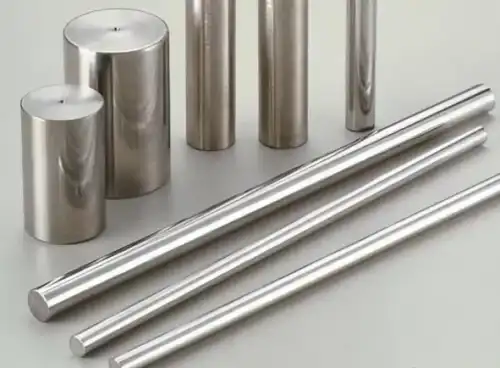In pharmaceutical production, equipment is often in contact with inorganic and organic acids and salts such as hydrochloric acid, nitric acid, and sulfuric acid, which leads to frequent damage to equipment due to corrosion. Traditional steel equipment releases iron ions during use, which in turn contaminates the product and affects the quality of pharmaceuticals. To solve this problem, the pharmaceutical industry began to use iron equipment, but this is not the optimal solution, for titanium in pharmaceutical production because some specific circumstances, iron equipment may also be affected by corrosion.

Vitamin B1, or thiamine hydrochloride, is a hydrochloride drug that contains a large amount of free chloride ions. This ion has a significant corrosive effect on stainless steel, the use of stainless steel equipment for the production of vitamin B1 less than half a year, the finished drug may appear corrosive substances, serious damage to the quality of drugs.
In contrast, the corrosion resistance of titanium metal is far superior to stainless steel. Industrial pure titanium TA3 corrosion rate is very low, only 0.00088mm / a. Therefore, the pharmaceutical industry began to try to use titanium equipment. For example, in the production of vitamin B1, the use of a titanium spiral feeder, cyclone separator, vortex body, hopper, discharge pipe, and exhaust box titanium lining, vitamin B1 qualified rate from the highest 95% to 100%, and the use of titanium equipment for more than seven years without corrosion.
In addition to vitamin B1, titanium is also widely used in the production of other chemical synthetic drugs. For example, chloramphenicol, metronidazole, anacin, and other drugs in the production process have used titanium heat exchangers, rising membrane concentrators, titanium nitration reaction pots and titanium centrifuges, and other titanium equipment.
Some pharmaceutical factories in 1980 took the lead in titanium hanging experiments, titanium tablets were placed in the corrosion of serious pyrazolone hydrolysis equipment. After two months of experimental observation, titanium loss of weight is almost zero, with no signs of corrosion. The results of this experiment further confirmed the corrosion resistance of titanium in pharmaceutical production.
Since then, pharmaceutical companies have begun to widely use titanium equipment. In the chloramphenicol recovery process, the manufacture of a set of titanium alloy rising membrane concentrators; in the chloramphenicol centrifugal filtration process, the use of titanium centrifugal filters; in the deworming drug tetramisole and nitrochlorophenol in the production process, but also the application of titanium anchor stirrer and titanium filtering tanks and other titanium equipment.
The use of these titanium equipment not only improves the qualification rate of drugs but also significantly extends the service life of the equipment. For example, in the production of the tetraimidazole process, due to the equipment needing to contact with hydrochloric acid, hydrochloride, and other strong corrosive media, the life of the steel equipment is extremely short. And Hanjiang Pharmaceutical Plant after the application of titanium filter press tanks, over the years the operation of the effect is very significant, the product rate increased to 100%. Similarly, in the production of veterinary drugs nitrochlorophenol in the process, the use of a titanium anchor stirrer has not found any corrosion phenomenon, or normal operation, to solve the production of the old problem.
To summarize, titanium in the pharmaceutical production of corrosion-resistant applications is of great significance. It not only improves the quality and qualification rate of drugs but also reduces the cost of equipment maintenance and replacement, making an important contribution to the development of the pharmaceutical industry.











